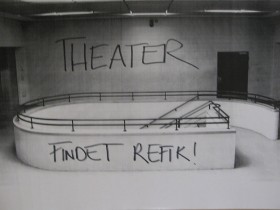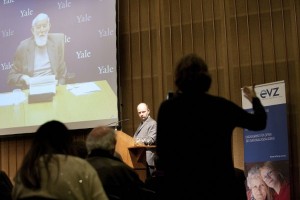
A scene from the theater play, “Findet Refik!” © Lernkultur – Institut für Bildungsforschung und Evaluation, photo: Katharina Obens
The recently approved introduction of upper secondary level teaching at the Refik-Veseli-School was a first for Kreuzberg 36, an inner-city district of Berlin, which is very popular. Now, local kids from the neighborhood called “Wrangelkiez” need no longer travel to other districts to study for the “Abitur,” Germany’s high school diploma. This is a major step towards assuring non-segregated educational opportunities in Kreuzberg
The 8th Integrated High School in the downtown district of Kreuzberg-Berlin sealed its partnership with the Jewish Museum Berlin in June 2012. Prior to that, all the staff and pupils had voted on a new name for their school and decided to call it the Refik-Veseli-School. For during a study trip to Israel, pupils had visited the Yad Vashem Museum and learned about the history of Refik Veseli—a man acknowledged being Righteous Among the Nations.
Refik Veseli was a 17-year-old apprentice in a photo studio in Tirana, Albania, when he first met the Jewish photographer Mosche Mandil, who had fled Yugoslavia to escape the National Socialists. But in 1943 the Germans invaded Albania too, and things became much more dangerous for Jews. The Veseli family owned a house in Kruje and decided to hide Mosche Mandil and his family there. It turned out to be a three-year commitment. → continue reading
